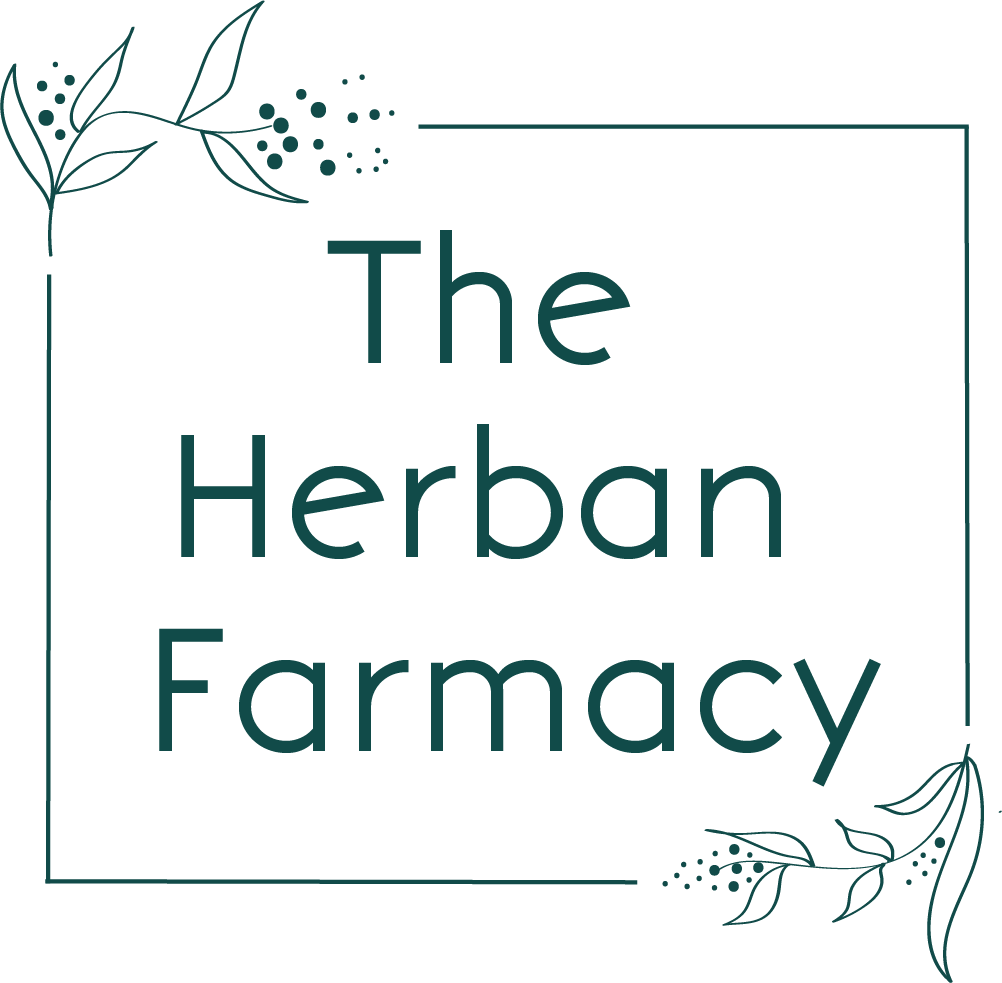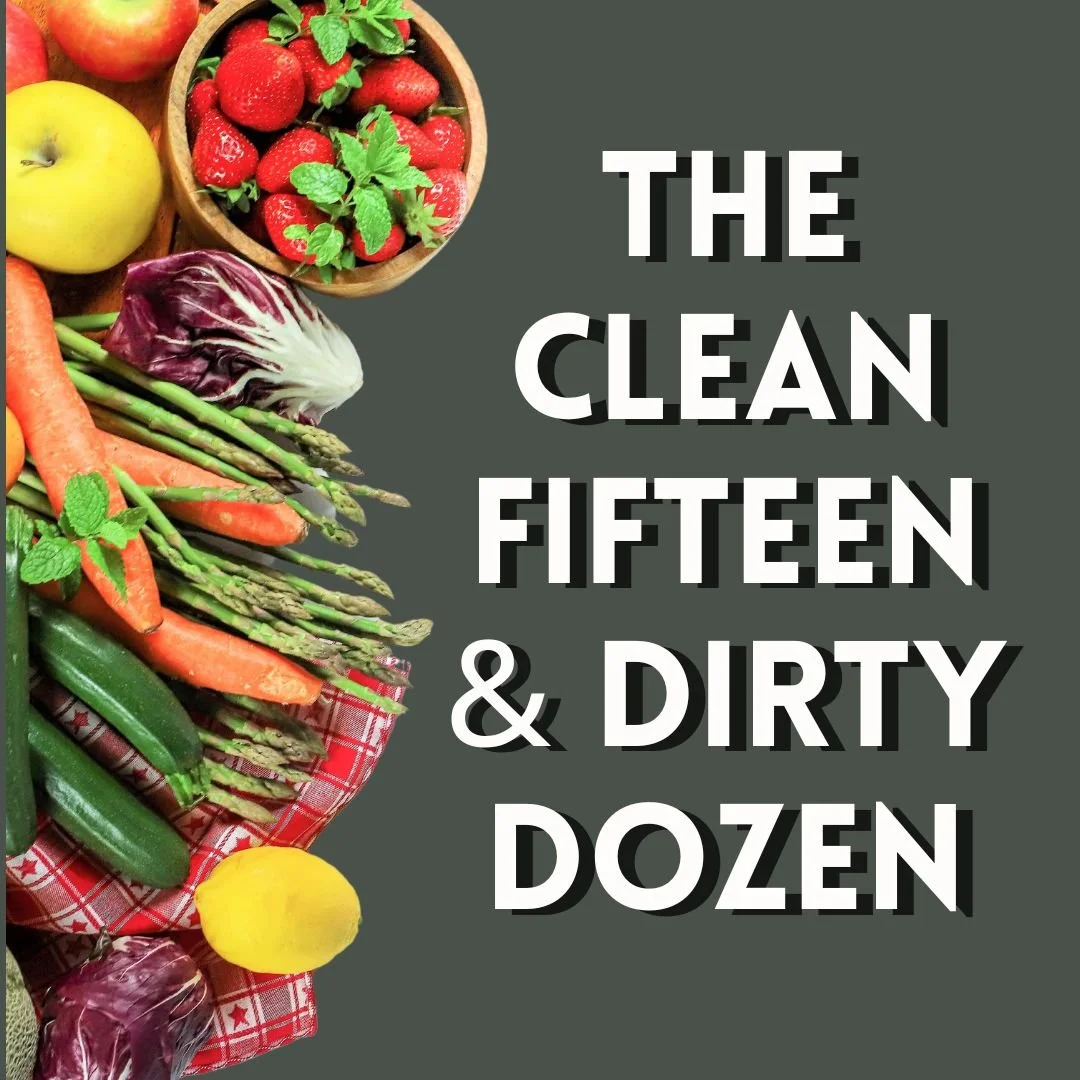The Clean Fifteen & Dirty Dozen
The Clean Fifteen & Dirty Dozen:
The Ultimate Guide to Buying Fresh Produce
If you are health-conscious, you are probably aware of the importance of eating fresh fruits and vegetables. However, not all produce is created equal. The Dirty Dozen and Clean Fifteen lists are essential to consider before making your next trip to the grocery store. As farmers ourselves, it is important to me that you know how vital choosing safer food options is, so I will explain what these lists are, why they matter, and how you can use them to make informed choices about your produce.
What are the Dirty Dozen and Clean 15 lists?
The Clean Fifteen and Dirty Dozen lists are two sets of produce rankings that highlight which fruits and vegetables have the most and least pesticide residues, respectively. These lists are published annually by the Environmental Working Group (EWG), a non-profit organization that aims to protect human health and the environment.
The Dirty Dozen list consists of 12 fruits and vegetables with the highest pesticide residues.
They are ranked in order, starting with the most contaminated. The 2023 Dirty Dozen list includes:
Strawberries
Spinach
Kale, collard & mustard greens
Peaches
Pears
Nectarines
Apples
Grapes
Bell & hot peppers
Cherries
Blueberries
Green beans
“More than 90 percent of samples of strawberries, apples, cherries, spinach, nectarines and grapes tested positive for residues of two or more pesticides,” EWG’s report states.
The Clean Fifteen list, on the other hand, consists of 15 fruits and vegetables with the lowest pesticide residues.
They are ranked in order, starting with the least contaminated. The 2023 Clean Fifteen list includes:
Avocados
Sweet corn
Pineapple
Onions
Papaya
Sweet peas (frozen)
Asparagus
Honeydew melon
Kiwi
Cabbage
Mushrooms
Mangoes
Sweet Potatoes
Watermelon
Carrots
Why do the Clean Fifteen and Dirty Dozen lists matter?
The Clean Fifteen and Dirty Dozen lists matter because they can help you make informed choices about which produce to buy. Eating fruits and vegetables is essential for good health, but consuming too many pesticides can be harmful. According to the EWG, pesticide residues have been linked to a variety of health problems, including cancer, hormone disruption, and brain development issues in children.
By choosing fruits and vegetables from the Clean Fifteen list, you can reduce your exposure to harmful pesticides. On the other hand, if you cannot find organic versions of the Dirty Dozen produce, you may want to consider substituting them with safer alternatives.
How can you use the Clean Fifteen and Dirty Dozen lists?
The Clean Fifteen and Dirty Dozen lists are not meant to be absolute guides. Instead, they are meant to be tools to help you make more informed decisions about the produce you buy. Here are some ways you can use the lists:
1. Buy organic versions of the Dirty Dozen produce
Organic produce is grown without synthetic pesticides or fertilizers, which makes it a safer choice for your health. If you can find organic versions of the Dirty Dozen produce, it is recommended that you choose them over conventional versions.
2. Buy conventional versions of the Clean Fifteen produce
The Clean Fifteen produce is less likely to contain high levels of pesticides. If you cannot afford or find organic versions of these fruits and vegetables, it is generally safe to buy conventional versions.
3. Know which fruits and vegetables are in season
Fruits and vegetables that are in season are generally cheaper and fresher than those that are out of season. Check out your local farmers markets to know what is in season in your area and look at sales at the grocery store for produce that is in season as they tend to reduce pricing for those items throughout the seasons.
4. Wash your produce thoroughly
Regardless of whether you buy organic or conventional produce, it is important to wash your fruits and vegetables thoroughly before consuming them. This can help remove any pesticide residues that may be present on the surface of the produce.
5. Consider frozen and canned options
Frozen and canned fruits (only packed in their own juice, never in sugar) and vegetables can be good alternatives to fresh produce, especially when certain fruits and vegetables are out of season. However, it is important to check the label to ensure that no additional sugars or preservatives have been added. My first option would always be choosing frozen vs canned, but get what you can and do your best.
Conclusion
Eating fresh fruits and vegetables is essential for good health, but not all produce is created equal. The Clean Fifteen and Dirty Dozen lists are important tools to help you make more informed choices about which produce to buy. By choosing organic versions of the Dirty Dozen produce and conventional versions of the Clean Fifteen produce, washing your produce thoroughly, and considering frozen and canned options, you can reduce your exposure to harmful pesticides and enjoy the health benefits of fresh fruits and vegetables.
FAQs
What is the Environmental Working Group?
The Environmental Working Group (EWG) is a non-profit organization that aims to protect human health and the environment by conducting research and advocating for policy change.
Are the Dirty Dozen and Clean Fifteen lists updated annually?
Yes, these lists are updated annually to reflect the latest pesticide residue data.
Can I completely eliminate my exposure to pesticides by choosing produce from the Clean Fifteen list?
No, it is not possible to completely eliminate your exposure to pesticides, even when choosing produce from the Clean Fifteen list. However, by choosing produce from this list, you can reduce your exposure to harmful pesticides.
Are organic fruits and vegetables always more expensive than conventional produce?
Not necessarily. While organic produce can be more expensive than conventional produce, prices can vary depending on the region, season, and availability.
Are frozen and canned fruits and vegetables as nutritious as fresh produce?
Frozen and canned fruits and vegetables can be as nutritious as fresh produce, especially when they are picked at peak ripeness and immediately frozen or canned. However, it is important to check the label to ensure that no additional sugars, sodium or preservatives have been added.


